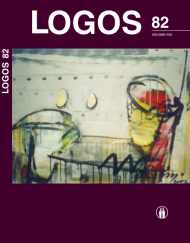Transgender Tapatybių Diskursas: Camp Estetikos, Lyties Performatyvumo Teorinės Perspektyvos
Discourse of Transgender Identities: Theoretical Perspectives of Camp Aesthetics and Gender Performativity
Author(s): Gintarė NarauskaitėSubject(s): Gender Studies, Aesthetics, Social Philosophy, Social differentiation, Demography and human biology
Published by: Visuomeninė organizacija »LOGOS«
Keywords: gender performativity; camp sensibility; camp aesthetics; drag queens; transgender; subversion;
Summary/Abstract: This article presents theoretical concepts of gender performativity, camp sensibility and their connection with transgenderism discourse while discussing transgenderism of drag queens. A theory of gender performativity by J. Butler is presented and in the context of this theory an aspect of gender as a practice of quotation and constant performance is emphasized. On the basis of this perception, this article stresses that there is no authentic and universally correct form of sexuality, since all subjects see sexuality as a social, historic or a cultural construct. The concept of gender performativity also turns out to be a form, which supports hegemony of naturalisation. Normalisation treats some individuals (heterosexuals, conventional men and women) as legitimate and others (transgender people, non-heterosexuals) – as improper. Continuously repeated performances maintain a traditional binarism of masculinity and femininity, stereotypes and standards which indicate characteristics of these categories. Nevertheless, the perception of constructed gender reveals an element of subversion, since it emphasizes the fact that idealized identities are created which means their status can be modified and that it is not a predetermined element but a construct. Appropriation of traditional norms and breakdown of gender binarism, which is encouraged by transgender subjects also demonstrate gender multiplicity, transgression and fragmentariness. Furthermore, emphasis should be placed on the fact that camp sensibility, which is also characterized by decorative, stylized, theatrical and elaborate camp aesthetics full of elements of parody, can be perceived as a merely aesthetic unit or become a subversive practise as well.
Journal: LOGOS - A Journal of Religion, Philosophy, Comparative Cultural Studies and Art
- Issue Year: 2015
- Issue No: 82
- Page Range: 216-222
- Page Count: 7
- Language: Lithuanian

